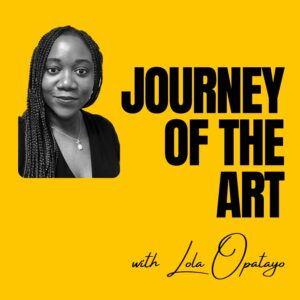Today I would like to share my thoughts on the subject of the demand and supply of jobs and present you with two perspectives. First as an employer considering the nature of my job as a Human Resources professional and second as an employee, as I am in the employ of an organization. So you can call me the jury and the judge!
Seeking & finding jobs especially in markets like ours can be a frustrating and daunting experience for both the employer and employee. Why the employer you might ask? Employers everywhere face a general challenge: finding the right people with the right skills set at the right time and cost.
Employers are looking for people that can do the job, even though some have argued that they should look for potentials, that is, people that will do the job given the right environment. The problem however is that most employers don’t want to take the responsibility to train, hence their search for a “plug & play”. Also, employers are racing against their deliverables and organizational objectives, and hiring potentials is a longer route to achieving those objectives.
However, in Nigeria and a country like India, potential employees (fresh & experienced) are numerous; an average mid-level vacancy gets between 3000 – 5000 internet hits. The employed are looking for better paying jobs and conditions of service while the unemployed are wondering why there are no jobs. How then can the gap between both groups be bridged?

A typical job seeker will go right ahead to apply for a position that he/she is interested in, while the employer posts a job with specifics in mind. Also remember there are so many other people that have the exact requirement, so there must be an evidence that you have demonstrated competence.
Interested in a change of career even though you have experience doing other things? You must realize that it always seems like a step backward to make a change, because you are either taking a pay cut or you are moving to a “lower level” in other to change careers. So the question I usually ask is “how bad do you want it?” A recruiter is not just looking for experience they are looking for relevant experience so you need to have certifications or qualifications in the area of interest and I usually suggest you volunteer within your organization. Volunteer to join project teams of the department you are interested in and start to have those conversations with your line managers (only applicable to star performers though J) or you outrightly look out of the organization but it is usually difficult and when you get the opportunity, you often need to take a pay or level cut. In the end however, you will find that you are enjoying your experience in your new field and becoming more relevant.
In the entry level jobs category (where a lot of people fall into) however, recruiters in Nigeria especially come up with all manner of assessments to short list due to the volume of applicants. Therefore most applicants with basic qualifications apply and don’t get called back. Let me share a few reasons why an entry level applicant (who is most likely a fresh graduate) might not get called back.

First, the irrelevance of the degree to the program or role. The class of degree is also typically used as a disqualifier. Second, the age of the applicant, while not legal can be a disqualifier. Recruiters are in search of young, “malleable” minds that they can build their organizational cultures into. You might consider this as unfair considering the fact that the incessant strike actions in your tertiary institution are not your fault. I will say this though, if you are late you need an extra advantage. An extra advantage is to know early enough what you want to do and start to get more qualifications in that regard. If for instance, you are studying as an accountant, you should consider studying for ACCA and ACA certifications before you finish school or consider COREN qualifications or an internship if you are studying to be an engineer. All of these are considered extra advantage that can cause age to be overlooked. It saves time and money for a recruiter!
I spoke to a recruiter friend in the Netherlands and she said that an average job ad attracts at its best fifty (50) applicants. I was amused because in Nigeria it’s an average of three thousand (3000) to Five thousand (5000) for an entry level job. You can then understand the decisions of a typical Nigerian recruitment desk/ HR professional in sorting and shortlisting!

Now let me be more general. What does your CV look like? Who do you know (who can give you career guidance and updates on vacancies)? Do you have knowledge of work tools (what is an accountant without the knowledge of MS Excel for example)? How do you appear? You must look the part, no one will hire a shabby looking qualified person when there is a sharp-looking qualified person available. I will tell you about looks and hiring in the next series. Please look your best every time. Diction and pronunciation give the first impressions, why not work on those? Confidence is key, I once had a lecturer in the university who used to say “say your nonsense confidently”! You have to be confident in your ability to deliver; it appears in your carriage and tone of voice.
I hope this sheds some light on the rigors of the recruitment process. We’ll talk some more about interviews in the next piece.
Best regards!
Oluwakemi Seedy is an experienced human resource professional with vast years of experience as a Talent acquisition specialist, HR consultant and Business Partner. She is certified by the Human Resource Certification Institute USA as an international Professional in Human Resources {iPHR) and an associate of Chartered Institute of personnel Management. You can follow her: Twitter: @kemiiseedy LinkedIn: Seedy Oluwakemi Read more about her here



Thank you for sharing this here. It is quite helpful.
Its my pleasure! Thanks for the feedback